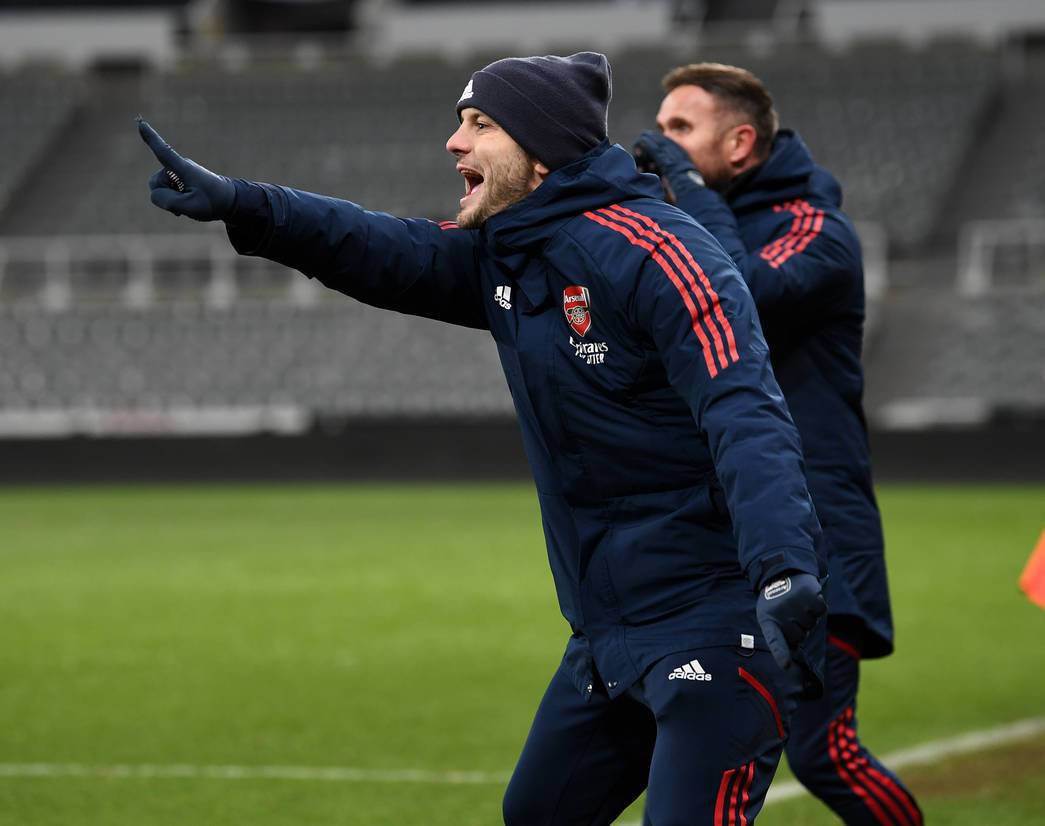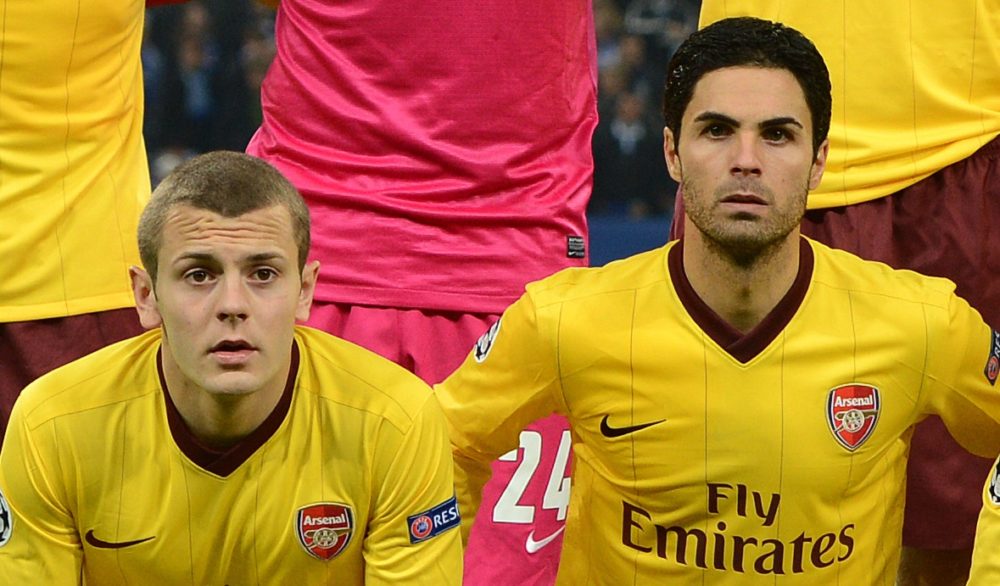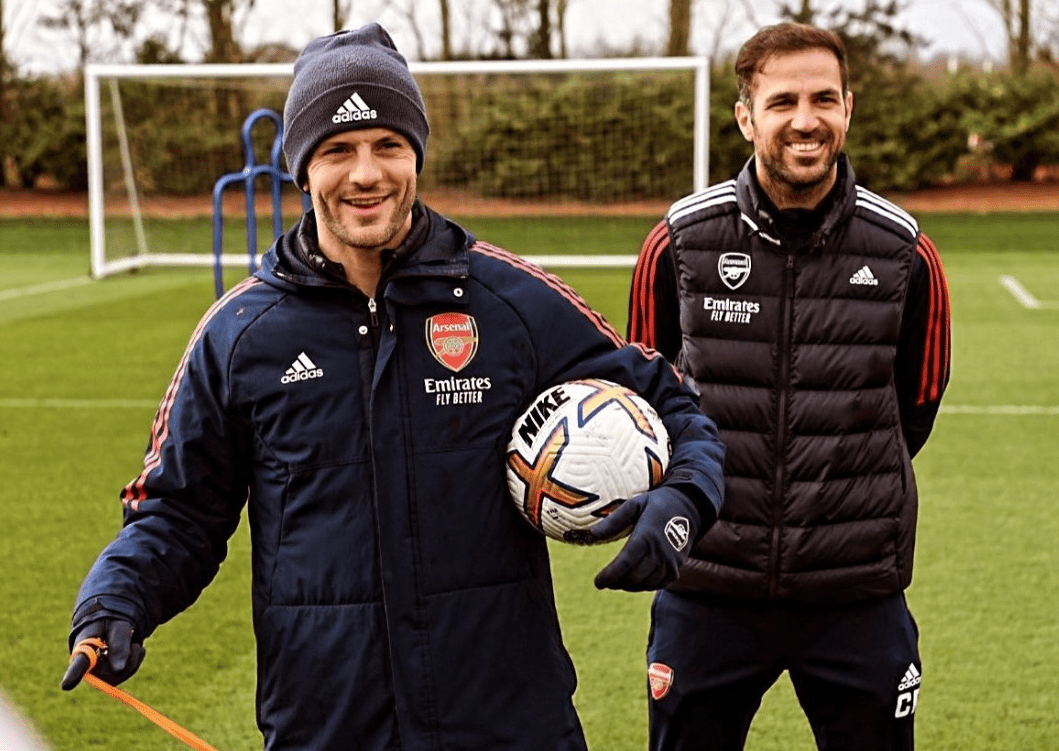Jack Wilshere has rekindled his love for football after transitioning from Arsenal’s “bomb squad” to a promising coaching career at the club’s academy.

From “bomb squad” to coaching prodigy
Jack Wilshere, former Arsenal midfielder, is rediscovering his passion for football in a coaching career with the club he once represented as a player.
The 31-year-old has come a long way from being part of the Arsenal “bomb squad” to being on the verge of managing in a Youth Cup final in less than a year.
Guiding Arsenal U-18s towards FA Youth Cup success
Wilshere is now in charge of Arsenal’s Under-18 team, who are set to face Manchester City in the FA Youth Cup semi-final at the Emirates Stadium.
It’s a competition he won himself back in 2009 when he was a promising young talent at the club. As a coach, Wilshere is committed to helping the next generation of Gunners reach their full potential.
His playing career was, of course, ruined by injuries, and he eventually retired at the age of 30 after a brief stint with Danish side AGF.
However, his transition to coaching has reignited his love for the sport. “I love it, honestly. It’s given me back the real deep love for football, and I didn’t know I’d lost it, to be honest,” Wilshere shared.
“Then I had a decision to make. Do I want to go to Denmark? I loved it, I loved the country, the people, but I didn’t love it as much.
“When I came back here, and it might be because it’s Arsenal, I feel like people here genuinely care about me, which is nice.
“I love it. On the grass, trying to beat teams, trying to work out a way to play against teams, trying to develop an individual.
“Obviously, it was a different world I was entering. The corporate world, all the emails – but now I’m in a place where I’ve worked that out, I’ve structured my day better. The coaching stuff I absolutely love.
“I only did it because Per had been offered the academy manager job but he needed his B and then A (licence) to get it,” he said.
“I was in the bomb squad, I called it, I had come back from (a loan to) Bournemouth, broke my leg, been told I could leave and had a year left on my contract.”
Mikel Arteta’s influence on Wilshere’s coaching philosophy

The Arsenal legend credits former teammate and current Arsenal manager, Mikel Arteta, as an inspiration in his coaching approach.
Wilshere admires Arteta’s vision for the game and the way the first team plays under his guidance. He believes that aligning the playing style of the youth teams with the first team helps young players like Bukayo Saka and Emile Smith Rowe break into the senior squad.
“I love the way that he sees football,” he said of Arteta.
“I love the way that the team plays. We’ve had a real go at trying to be as aligned to the first team as we can which has helped me as well because I’m learning different things about the game.”
Wilshere has also learned from Arteta’s unique team-talks and motivational techniques, acknowledging that different players respond to different methods.
As a young coach, he is not afraid to experiment and adapt his approach to best serve the needs of his players.
“I have done some quirky things which I won’t tell you,” he said.
“I think when I was coming through there wasn’t really that side of coaching going on – Arsene never brought a lightbulb through or played music before a game – but part of me feels it’s genius.
“With this generation, with Instagram, they’re looking at motivational videos and things to get them motivated all the time. I think it works. Mikel has done a great job at dipping different things and building around that.
“I don’t think the day of the hairdryer has gone – some players actually respond better to that. Some players want to be told.
“Some players you can be brutally honest with. Some players you need to dress it up a little bit more.
“If you can make the player feel like the programme – what we’re doing – is really going to help him. Then you get buy-in.”
Further reading
- https://www.uefa.com/insideuefa/football-development/coaching/ (UEFA coaching information)
- https://www.thefa.com/learning/coaching (FA coaching information)

